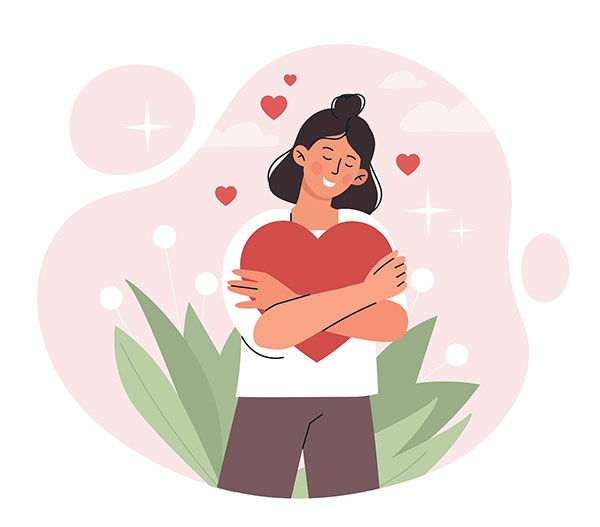By Sarah Hornby
But even if you have the best of intentions, almost all New Year’s resolutions fail by the second week of February. It can be difficult to find the motivation to maintain these personal commitments, especially for those already managing mental health challenges.
Mental health concerns are on the rise following the pandemic, increased economic pressures and social issues. Women are particularly impacted. Many mental health conditions, such as depression and bipolar disorder, affect more women or affect women in different ways, according to the Substance Abuse and Mental health Services Administration. However, there is hope. Small steps can support positive mental well-being and ensure a happier and healthier 2023.

1. Set realistic expectations.
Many resolutions fail early because people expect changes overnight. Mental health challenges take time and commitment to treat, just like any physical ailment. Start by focusing on one or two achievable steps, like journaling twice a week or taking regular walks. Mastering these small steps can motivate you to do more.
2. Make exercise part of your routine.
Research shows exercise can improve symptoms of depression and anxiety. For individuals who are struggling with low energy and motivation, consider starting slow with a five-minute daily walk. This is a good way to get your body moving, and it’s easy to slowly increase the activity level as confidence builds.
3. Use meditation to reduce stress.
Studies suggest meditation can help with stress and anxiety. In the wake of the COVID-19 pandemic, stress levels across the country are alarmingly high, according to the American Institute of Stress. For example, with the increase of remote work, many people are going without a dedicated workspace and struggle to unplug. Mindfulness meditation can be an easy strategy to add to your routine to reduce stress. Not sure where to start? Several meditation apps are available for smart phones.
4. Take social media breaks.
More than 70 percent of Americans use social media, which has been linked to conditions like depression and anxiety, according to the Pew Research Center. From comparison culture leading to lower self-esteem to the constant stream of negative news, social media may have a bigger effect on your daily mental health than you realize. Try taking regular breaks, even if it’s just for a couple of days at a time.
5. Ask for help.
Mental health challenges increase the urge to isolate, but this will only worsen these feelings in the long -term. Don’t be ashamed or feel guilty about asking for help. Talking about your feelings can be a great way to understand and address the root cause.
These small changes could lead to healthier coping mechanisms and long-term mental wellness in the new year.
Sarah Hornby is a psychiatric nurse practitioner at Oceans Behavioral Hospital, Biloxi. Oceans Biloxi provides inpatient, partial hospitalization and outpatient treatment for adults and inpatient programs for adolescents 12-17. For more information, visit www.oceansbiloxi.com.


